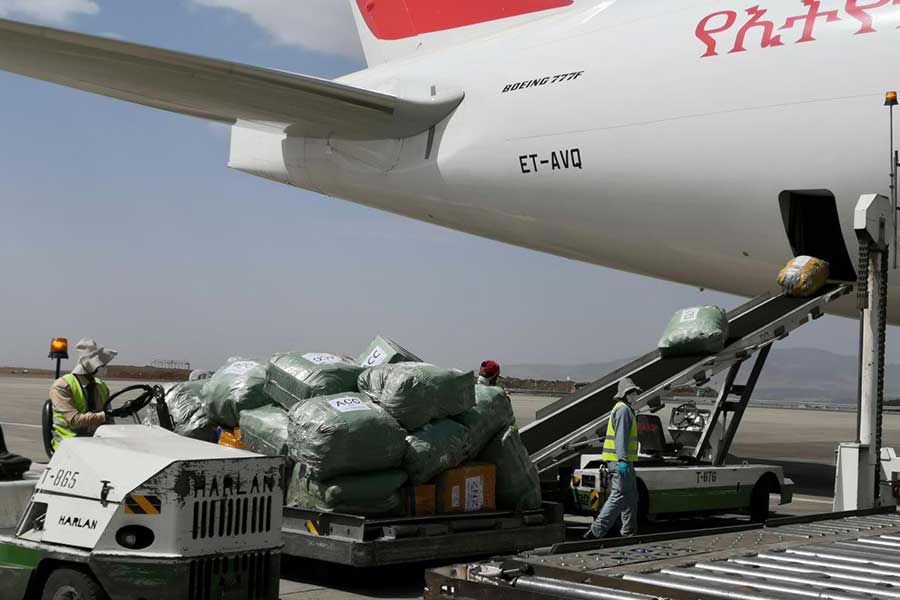
Radar | May 04,2025
Nov 27 , 2021.
"Against my will, I have witnessed the most terrible defeat of reason and the most savage triumph of brutality in the chronicle of time. Never - and I say so not with pride but with shame - has a generation fallen from such intellectual heights as ours to such moral depths."
Stefan Zweig, The World of Yesterday.
There were discoveries in the scientific or social science frontiers that have altered the course of human history. But nothing does so with as much finality and whiplash as war. There is a reason that human history is told in chapters of wars. It upends the way people live and their relationship with authority and nation. It touches on nearly every facet of social, political and economic organisation of society, even if it does not last that long, as long as it is bloody enough.
The civil war in Ethiopia is no different. But it has impacted a few industries as much as it has the financial sector. Considering how integral financial institutions are to the national economy and the government’s policymaking objectives, this is not surprising. Even in a country as unbanked as Ethiopia, where financial literacy is low, banks have deposits worth 1.3 trillion Br in their vaults, over double the federal government’s budget for this year. And they are growing in number, capital and product diversity.
Even as the capital requirement for establishing a bank has been bumped up 10-fold, promoters are still selling shares and microfinance institutions are making the transition to the big guys club. There was no way they could have gotten past a time of war under the radar. The public has no less appetite to get a slice of these banks.
But their luck has been turning as bad as the political and security situations in the country. While an environment of political uncertainty could not have helped their business case, the government's measures have been significant. The most challenging issue they face is the suspension of collateralised loans for an unspecified period. Although a few exceptions apply to exporters, credit is the foundation of commercial banks business model and have been limited from engaging in it for the past three months. Not knowing when things will get back to normalcy makes it more difficult for the banks to project the future in optimism.
Their problems do not end there. The deposits they have to hold at the central bank as a reserve has doubled to 10pc, lowering their liquidity. And keeping sound liquidity is hard to come by when a large part of the country is out of reach due to the war to mobilise deposits. Banks have been forced to close their branches in many parts of the country since the civil war, which began last year.
The central bank`s interest rate would also set them back three percentage points higher than it used to before September 2021. They are no less on the hook for holding above ground the liberalised treasury market - without much say in the matter. They are financing the state with below-market interest rates.
Banks are expected to contribute directly to non-financial demands. They have since raised over 1.8 billion Br for humanitarian response efforts for those affected by the civil war through their association. Morally and ethically, institutions worth billions of Birr need to support communities and individuals devastated by the war. It is the age of stakeholder capitalism, after all. But it is also questionable how much manoeuvring space they have left given the ever restrictive regulatory environment and harsh economic situation in the country.
All of this is in contrast to what was expected to be a time of smooth sailing for banks as the economy was opened up. Full-fledged non-interest banking institutions have been allowed, and non-financial institutions have gotten a foothold. These have all been promising.
But contemporary Ethiopia has always been promising; it just never grabbed the opportunity. It has all the land, resources, labour and geopolitical advantage a country needs to develop. But the political space to do this has rarely been forthcoming, and it does not seem to be the case now for the financial sector.
The administration’s policy choices over the past year are not surprising.
It has put forward a series of justifications for its actions. It believes what it considers "economic sabotage" can be plugged back by stopping collateralised loans, especially in fighting capital flight. It also faces a budget squeeze due to falling productivity in the economy and suspension of aid from development partners. It does not want to have the central bank print money, which would exasperate the inflationary pressure on the economy. By selling bonds to banks and insurance companies, it wants to make up for a shortfall in the federal budget. It hopes that all of these measures are stopgaps for a particularly difficult time for citizens, especially those caught up in war.
But the financial sector has fragile institutions. They have a terrible time surviving in a period of uncertainty. Their biggest leverage is not that they have over a trillion Birr in deposits, although that could mean something. The trust they command among institutions and individuals has the confidence to keep savings in their vaults.
The more the pressure that mounts on them, though, the higher the financial sector could unravel. Several banks or insurance firms do not need to fall for this to happen. A single bank that teeters could spread the infection of uncertainty across the entire financial system. The escalation of the war has led banks to lose their base for deposit mobilisation as they have been deprived of the market to provide loans. They also fall under intense pressure to generate funds for the war effort and its consequences. If the sector struggles to keep up, there is a reasonable concern that it will take the whole economy with it.
The pressure placed on banks distracts from the source of the problem: the political situation has deteriorated to the point that uncertainty has reached unsustainable levels. It is impossible to run a sound economy under current circumstances, no matter the central banks' somersaults. The economy has been given most types of painkillers at this point, but these are not working. The root of the problem lies in politics, which cannot be relieved by treating the symptoms through financial sector-sourced glucose drips.
The road to recovery is the immediate end of the raging war. The country would get a respite from destruction and the population from human suffering. There are no better ways of ending the war than through negotiated political settlement. The mediation efforts by the African Union (AU), through Chief Olusegun Obasanjo, and the Kenyan government should be given a chance. So are the priorities clear to put Ethiopia back into a healthy trajectory.
"In the last resort, every shadow is also the child of light," said Stefan Zweig at the darkest moment for Europe during the Second World War.
PUBLISHED ON
Nov 27,2021 [ VOL
22 , NO
1126]

Radar | May 04,2025

Radar | Jun 12,2021

Commentaries | Sep 10,2022

Commentaries | Apr 17,2021

Radar | Oct 28,2023

Agenda | Mar 07,2020

Commentaries | Sep 30,2023

Fortune News | Mar 11,2023

Fortune News | Aug 19,2023

Fortune News | May 23,2020

My Opinion | 131586 Views | Aug 14,2021

My Opinion | 127942 Views | Aug 21,2021

My Opinion | 125917 Views | Sep 10,2021

My Opinion | 123541 Views | Aug 07,2021

Dec 22 , 2024 . By TIZITA SHEWAFERAW
Charged with transforming colossal state-owned enterprises into modern and competitiv...

Aug 18 , 2024 . By AKSAH ITALO
Although predictable Yonas Zerihun's job in the ride-hailing service is not immune to...

Jul 28 , 2024 . By TIZITA SHEWAFERAW
Unhabitual, perhaps too many, Samuel Gebreyohannes, 38, used to occasionally enjoy a couple of beers at breakfast. However, he recently swit...

Jul 13 , 2024 . By AKSAH ITALO
Investors who rely on tractors, trucks, and field vehicles for commuting, transporting commodities, and f...

Jun 29 , 2025
Addis Abeba's first rains have coincided with a sweeping rise in private school tuition, prompting the city's education...

Jun 29 , 2025 . By BEZAWIT HULUAGER
Central Bank Governor Mamo Mihretu claimed a bold reconfiguration of monetary policy...

Jun 29 , 2025 . By BEZAWIT HULUAGER
The federal government is betting on a sweeping overhaul of the driver licensing regi...

Jun 29 , 2025 . By NAHOM AYELE
Gadaa Bank has listed 1.2 million shares on the Ethiopian Securities Exchange (ESX),...